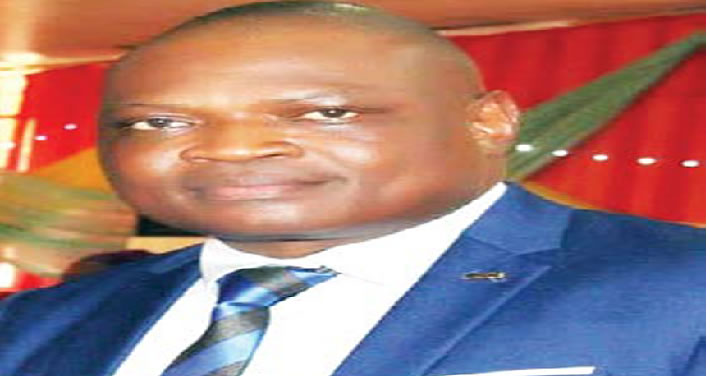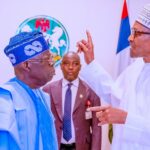
The President, Association of Small Business Owners, Femi Egbesola speaks with DANIEL AYANTOYE on his assessment of the business environment, especially for the Small and Medium-scale Enterprises in the eight years of the President, Major General Muhammadu Buhari (retd.)
How would you assess the business environment under the outgoing regime?
For us in the business community, it has been a very rough experience, because we were faced with quite a number of challenges which resulted in a number of businesses closing down. I can tell you that over 20 per cent of businesses went extinct over the last eight years. It’s been that bad. From infrastructure decay to unstable power supply and rise in inflation, we have never experienced such in the history of the country. Also, we had the issues of forex unavailability as well as the way parallel market rate went up. We had rising prices of kerosene, fuel, petrol, gas and diesel. Everything worked against us. As for the banks, it became difficult to access loans and even the available loans had high interest rates. It’s as high as 30 per cent interest rate per annum, which is the highest in the history of the country. Although there were some positive impacts, it was a far cry from the negative aspect that we experienced.
What is your assessment of the economy?
The economy is in a bad state and the data is there to support it. The data shows that inflation is very high. In a vibrant economy, inflation will not be astronomically high the way it is right now and you will not see the currency of a vibrant economy falling the way naira is. As of today, we have the highest unemployment rate so far. In the health sector, our professionals are leaving the country and many of those who are around are on strike. Our educational institutions are also in decay.
The issue of infrastructure is one aspect that the Buhari government has applauded itself, is this not a departure from what you are saying?
Yes, there are some great impacts when it comes to road infrastructure but the question is how many roads were constructed compared to the roads we have in the country. Can we say it is up to 40 or 50 per cent? It is not. From our own record, roads were constructed but it is still a far cry from the infrastructure deficit on the ground. Many roads are begging for repairs. Some are in a bad state that you cannot pass through. So, the bad roads overshadow the achievements the administration may have recorded in that aspect.
One of the issues Nigerians were faced with in recent times was the naira scarcity, what, in your assessment, was the impact of that policy on businesses?
You don’t destroy something to create another. Yes, there were good intentions regarding the policy, one of them was that it would reduce crime. The question is, was it achieved? No, rather we returned to the old notes. This means that those efforts that were initially deployed for the policy were in futility. The huge funds and other resources committed to the policy was more or less a waste. The irony of it is that it has affected a lot of businesses, and some lives were lost during that period of naira scarcity. Quite a number of properties were also damaged. It makes no sense. We expect that when the government wants to make such a policy, it will do its homework very well.
What is your advice to Tinubu’s government if perhaps it decides to toe the same path of going cashless?
Everybody knows that the best thing to do for a country like ours is to go cashless. That is what is in operation across the world and we cannot be an exception. Whether we like it or not, at some point we must go cashless. However, before you go cashless, you must make some provisions available. There is a need for the information to get to Nigerians early enough, maybe one year or more. Even in the United States and the United Kingdom, when they want to change their currency, they give as much as three to four years period and they allow the old and new currencies to run concurrently before the old one is phased out. Also, the timing has to be right. You can imagine what happened during the naira scarcity, there were serious issues. The incoming government must prepare the banks for the transition. Similarly, when you are going cashless, you need to make provision for those who are in rural communities that do not have banks. People like that will need the Point of Sale terminals for transactions, but how many people in the hinterlands can afford a PoS machine of N50,000 or N30,000 when their total business capital is not up to that? In other climes, when they want to go cashless, they make PoS machines available free for people in the hinterlands.
What is your advice to the incoming government in order to reposition the nation’s economy?
I will advise them to put the right square peg in the right hole. If you have a lawyer heading your ministry of works, what do you expect? You have a medical doctor heading the Ministry of Labour and Employment, what do you expect? We expect that the new administration will have a very strong economic team which the Buhari government lacks. His cabinet members should be able to work with key stakeholders in every sector and not do it alone because they cannot know it all. They should be able to sustain the good things from this present administration. As bad as it is, there are some good things that have come out of the Buhari administration; sustain that and correct the abnormalities. We also expect that the new administration should be able to attract more investors into the country, which will in turn attract forex. As it is currently, investors are leaving the country because the economy is not healthy. We expect that the incoming government will actively support the MSME sector because as long as we neglect that sector, it will be to the detriment of the country. They should also be able to work out international funding for business startups.
With the opening of the Dangote Refinery, what’s your expectation?
We expect the incoming government to be able to bring down the price of energy; kerosene, diesel, petrol and gas, because we will be selling it here and we will be buying in our currency. We expect that it is going to create a lot of jobs. It will be a relief to the government and the country as a whole because when people are gainfully employed, crimes will reduce. We expect that naira will gain more value because quite a number of these products will be exported and it will enhance forex earnings.
From all indications, the new administration would remove fuel subsidy, which will affect the price of commodities, what is your advice to the incoming government?
It has been agreed that the way forward is to remove fuel subsidy, but it must be done in a way that the effect on the populace will be cushioned. We are saying that if the subsidy will be removed, it shouldn’t be a one-off but done gradually; maybe 20 per cent removal this year, another 30 per cent the following year and so on. We also expect that as subsidy will be removed, other infrastructure like electricity and roads must be put in place. If there is constant electricity, people may not feel the impact of the subsidy removal because they will spend less on fuelling generators. Similarly, they will spend less to repair their cars when the roads are in good condition.





